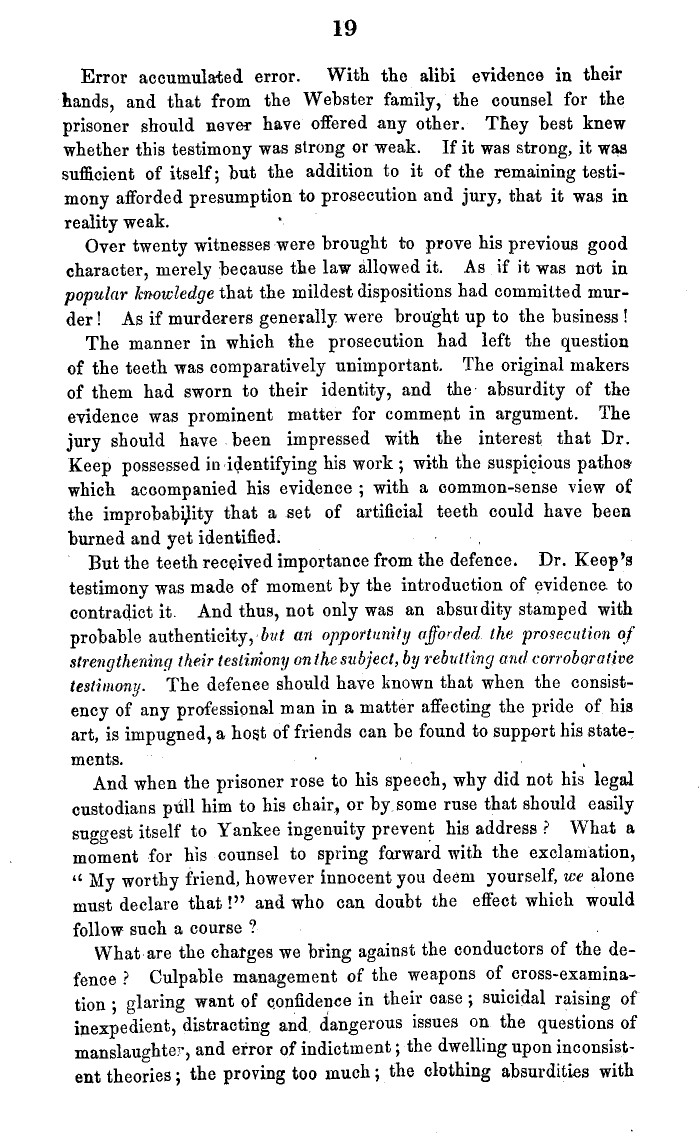|
19
Error accumulated error. With the alibi evidence in their
hands, and that from the Webster family, the counsel for the
prisoner should never have offered any other. They best knew
whether this testimony was strong or weak. If it was strong, it was
sufficient of itself; but the addition to it of the remaining testi-
mony afforded presumption to prosecution and jury, that it was in
reality weak.
Over twenty witnesses were brought to prove his previous good
character, merely because the law allowed it. As if it was not in
popular knowledge that the mildest dispositions had committed mur-
der! As if murderers generally were brought up to the business!
The manner in which the prosecution had left the question
of the teeth was comparatively unimportant. The original makers
of them had sworn to their identity, and the absurdity of the
evidence was prominent matter for comment in argument. The
jury should have been impressed with the interest that Dr.
Keep possessed in ddentifying his work ; with the suspicious pathos
which accompanied his evidence ; with a common-sense view of
the improbability that a set of artificial teeth could have been
burned and yet identified.
But the teeth received importance from the defence. Dr. Keep's
testimony was made of moment by the introduction of evidence to
contradict it. And thus, not only was an absurdity stamped with
probable authenticity, but an opportunity afo,ded the prosecution of
strengthening their testimony onthesubyect, by rebutting and corroborative
testiuiony. The defence should have known that when the consist-
ency of any professional man in a matter affecting the pride of his
art, is impugned, a host of friends can be found to support his state-
ments.
And when the prisoner rose to his speech, why did not his legal
custodians pull him to his chair, or by some ruse that should easily
suggest itself to Yankee ingenuity prevent his address ? What a
moment for his counsel to spring forward with the exclamation,
`c My worthy friend, however innocent you deem yourself, we alone
must declare that !" and who can doubt the effect which would
follow such a course
What are the charges we bring against the conductors of the de-
fence ? Culpable management of the weapons of cross-examina-
tion ; glaring want of confidence in their case ; suicidal raising of
inexpedient, distracting and, dangerous issues on the questions of
manslaughter, and error of indictment; the dwelling upon inconsist-
ent theories; the proving too much; the clothing absurdities with
|

